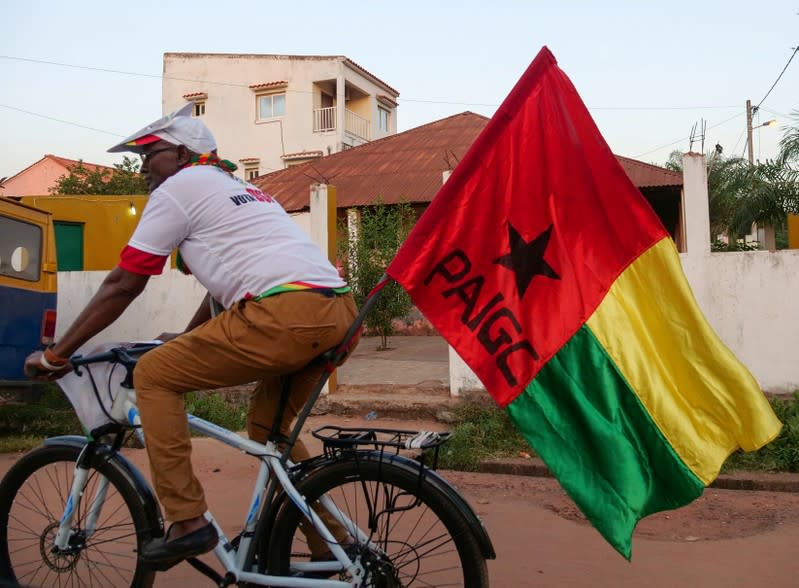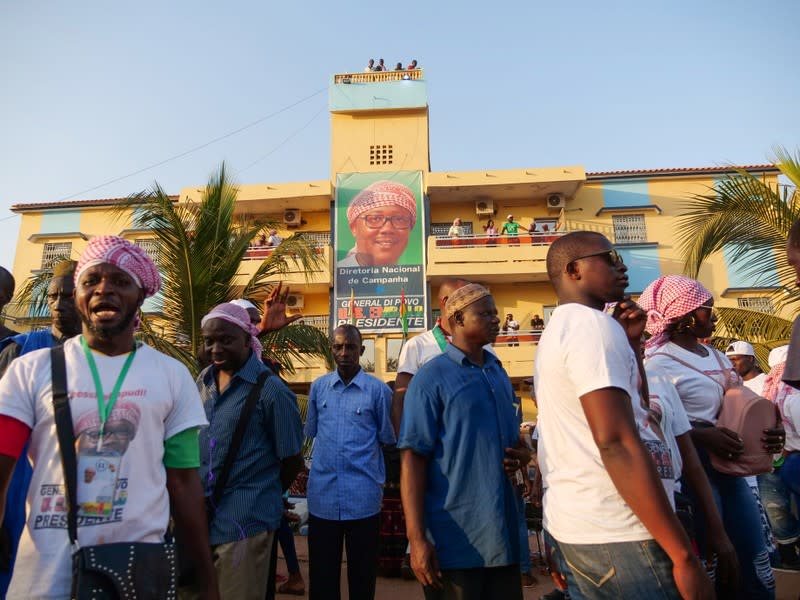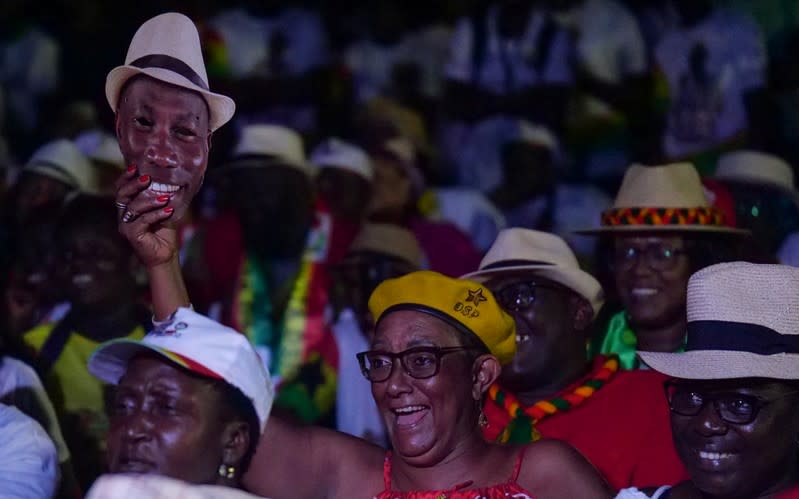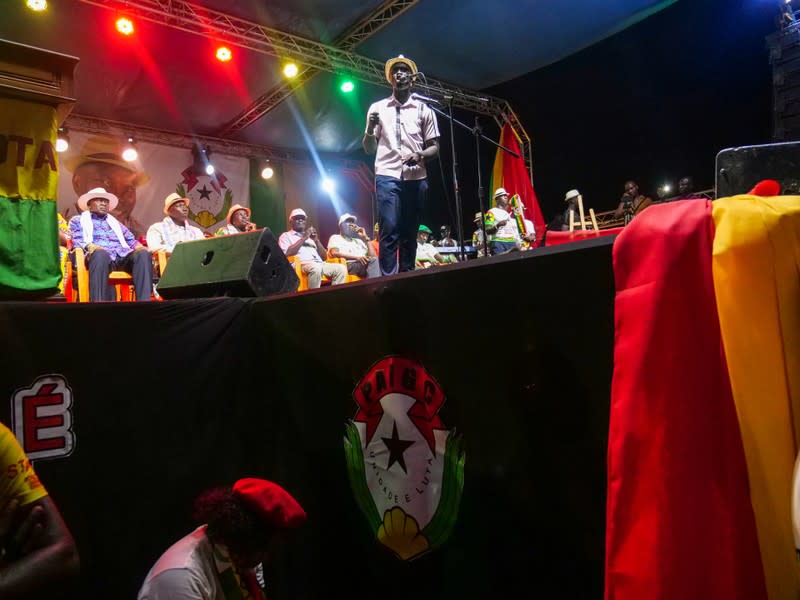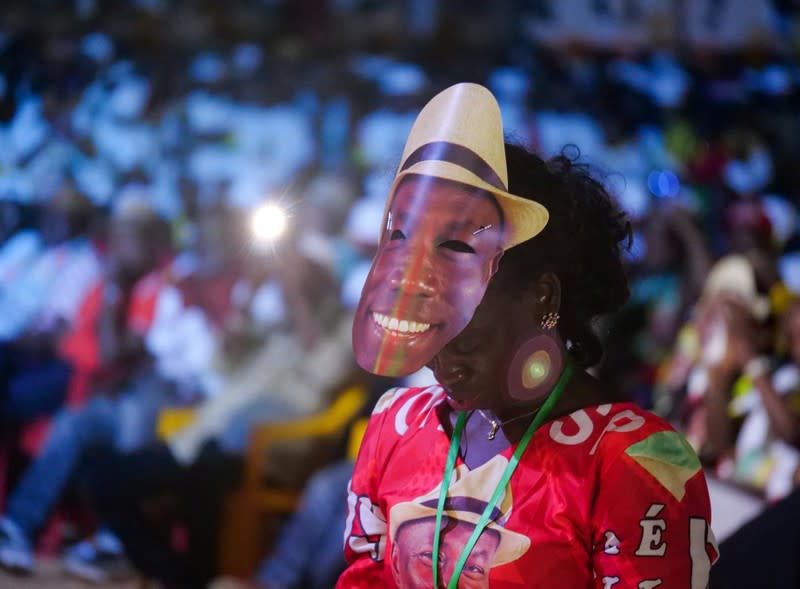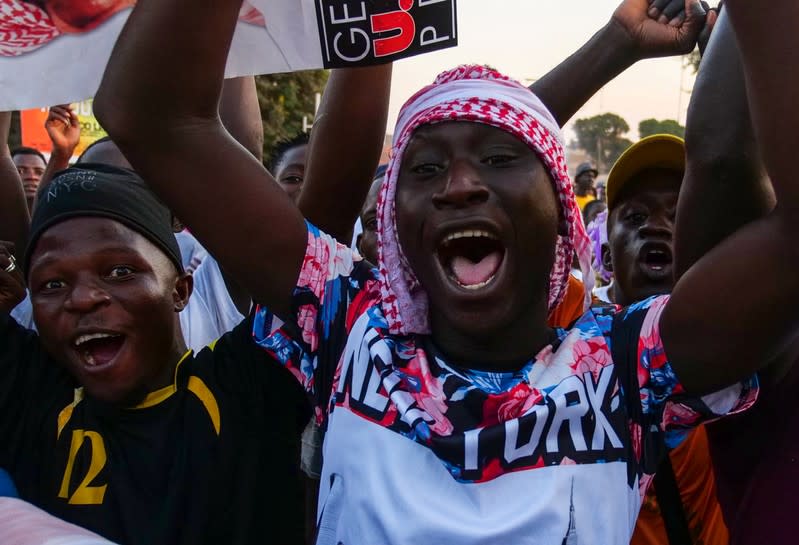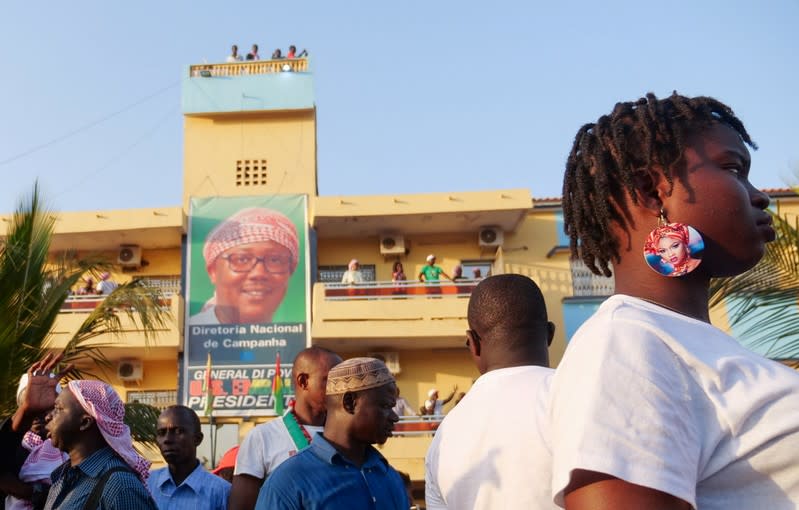Guinea Bissau counts presidential ballots after weeks of chaos
By Alberto Dabo
BISSAU (Reuters) - Guinea Bissau began counting ballots on Sunday evening from a presidential election that voters hope will bring change after weeks of political chaos that sparked protests and deadlocked parliament.
President Jose Mario Vaz, 61, was seeking re-election for a second term, and he remains popular among cashew nut farmers in the interior after raising prices for the nuts, the tiny West African country's biggest export earner.
But he faced stiff opposition following a first five-year term marred by political infighting, regular high-level sackings and corruption that came to a head in the run-up to Sunday's election.
"The people of Guinea Bissau are sovereign, and I will respect the verdict of the ballot box," Vaz said after casting his ballot in the capital, Bissau. "I have accomplished my mission of restoring peace and tranquillity," he said.
Poll workers started counting ballots by hand in the early evening after polling that appeared to pass largely without incident.
Preliminary results are expected on Nov. 28. If there is no outright winner, a second round between the top two candidates will take place on Dec. 29.
While no reliable opinion polls have been published, political analysts say the front-runner is former Prime Minister Domingos Simoes Pereira, 56, a moderniser with a relaxed style whose promise to bolster health and education have made him popular with younger voters in Bissau.
It was Vaz's sacking of Pereira in 2015 that led to the current political impasse. Since then, Vaz has cycled through six different prime ministers as he and Pereira's party waged a bitter power struggle.
"I am a democrat. Whatever the result, if it is announced by the competent authorities, I will respect it," Pereira said after voting. "These elections are crucial for the future of the country."
NINE COUPS
Guinea Bissau has seen nine coups or attempted coups since independence from Portugal in 1974, most recently in 2012 when a military takeover disrupted elections. If Vaz completes his term, he will be the first president to do so.
The country's deserted beaches and scattered islands are a draw for adventurous tourists, but its unpoliced waters also provide passage for drug traffickers smuggling cocaine en route from South America to Europe.
The next president will inherit major challenges including widespread poverty and an unstable political system in which the majority party appoints the government but the president has the power to dismiss it.
Political upheaval in Guinea Bissau, however, has typically not led to large-scale violence. But one protester was killed in an anti-government demonstration in early November.
In the latest chapter in Vaz's standoff with his rivals, the president fired premier Aristides Gomes on Oct. 29 and appointed a successor, but Gomes refused to step down. For about 10 days the country had two prime ministers, until Vaz backed down under pressure from the regional bloc ECOWAS.
Ude Mane, a 27-year-old civil servant, said she supported Pereira and his African Party for the Independence of Guinea and Cape Verde (PAIGC), which holds a majority in parliament.
"It is the only party that can pull the country out of its economic slump," she said.
(Writing by Edward McAllister and Aaron Ross; Editing by Emelia Sithole-Matarise and Frances Kerry)

 Yahoo News
Yahoo News 